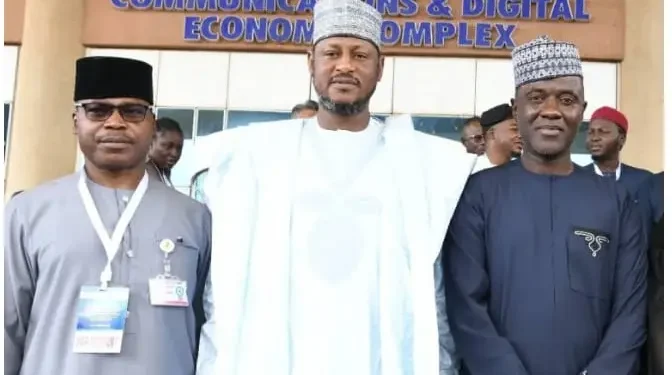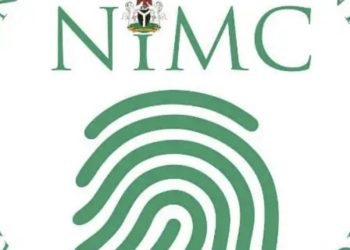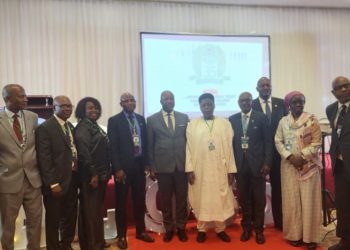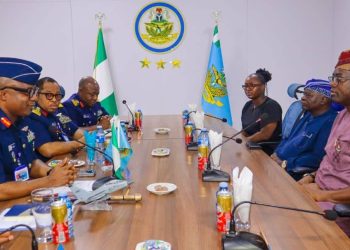By Nkechi Eze
The Nigerian Communications Commission (NCC) has intensified its efforts to protect telecom infrastructure, reduce Right of Way (RoW) costs, and attract new investments into the nation’s broadband sector, in line with President Bola Ahmed Tinubu’s Renewed Hope Digital Economy agenda. The move is part of a broader national strategy to deepen broadband penetration, strengthen investor confidence, and secure Nigeria’s digital backbone as the country accelerates its digital transformation drive.
To address the growing challenge of vandalism and sabotage of telecom facilities, the NCC, in collaboration with the Office of the National Security Adviser (ONSA), has set up a Telecommunications Industry Working Group to enforce site security standards and launch a nationwide awareness campaign to educate communities on the importance of protecting telecom assets. The partnership has already produced results, as ONSA has successfully dismantled criminal cartels responsible for the theft of telecom equipment. The NCC is also working with state governments and the judiciary to ensure that offenders are effectively prosecuted as a deterrent to others.
Speaking on the issue of high Right of Way charges, the Executive Vice Chairman (EVC) of the NCC lamented that several states still impose excessive fees despite the Nigerian Governors Forum (NGF) resolution fixing the standard rate at ₦145 per linear metre. However, sustained advocacy has yielded progress, with Adamawa, Bauchi, Enugu, Benue, and Zamfara states recently abolishing RoW fees completely, bringing the total number of compliant states to eleven, while seventeen others have implemented the approved ₦145 rate. The EVC reaffirmed the Commission’s commitment to achieving a uniform RoW policy across the country and promoting a “dig-once” infrastructure strategy to minimize fibre cuts, reduce deployment costs, and encourage shared use of telecom infrastructure among service providers.
To boost investor confidence, the NCC in 2025 approved new cost-reflective and competitive tariff frameworks, paving the way for telecom operators to commit over $1 billion in broadband expansion projects. The Commission has also commissioned a wholesale fibre study to promote open-access models, strengthen last-mile connectivity, and expand broadband services to underserved and rural areas.
Despite these gains, the EVC noted that the sector continues to face significant challenges. Between January and August 2025, Nigeria recorded 19,384 fibre cuts, 3,241 cases of equipment theft, and over 19,000 incidents of site access denial, all of which have resulted in prolonged service disruptions, revenue losses, and mounting security costs for operators. He also highlighted other persistent obstacles such as inconsistent RoW regimes, poor coordination with road authorities, unreliable power supply, multiple taxation, and bureaucratic bottlenecks in securing construction permits.
The EVC underscored the critical importance of broadband to national development, warning that Nigeria risks falling behind in the global digital race driven by artificial intelligence, automation, and outsourcing. “If our broadband backbone is weak, our youth will be marginalized, and our economy will not reach its full potential. In earlier eras, a community without a railway or electricity could still subsist. But today, a community without digital connectivity is invisible, cut off from education, markets, healthcare, and opportunities,” he cautioned.
A broadband protection roundtable convened by the NCC brought together governors, ministers, and private-sector stakeholders, all of whom reaffirmed their shared commitment to securing Nigeria’s digital infrastructure and sustaining the broadband expansion crucial for national growth and security. With its renewed push, the NCC aims to ensure that every Nigerian community remains connected, competitive, and secure in the digital age.

















